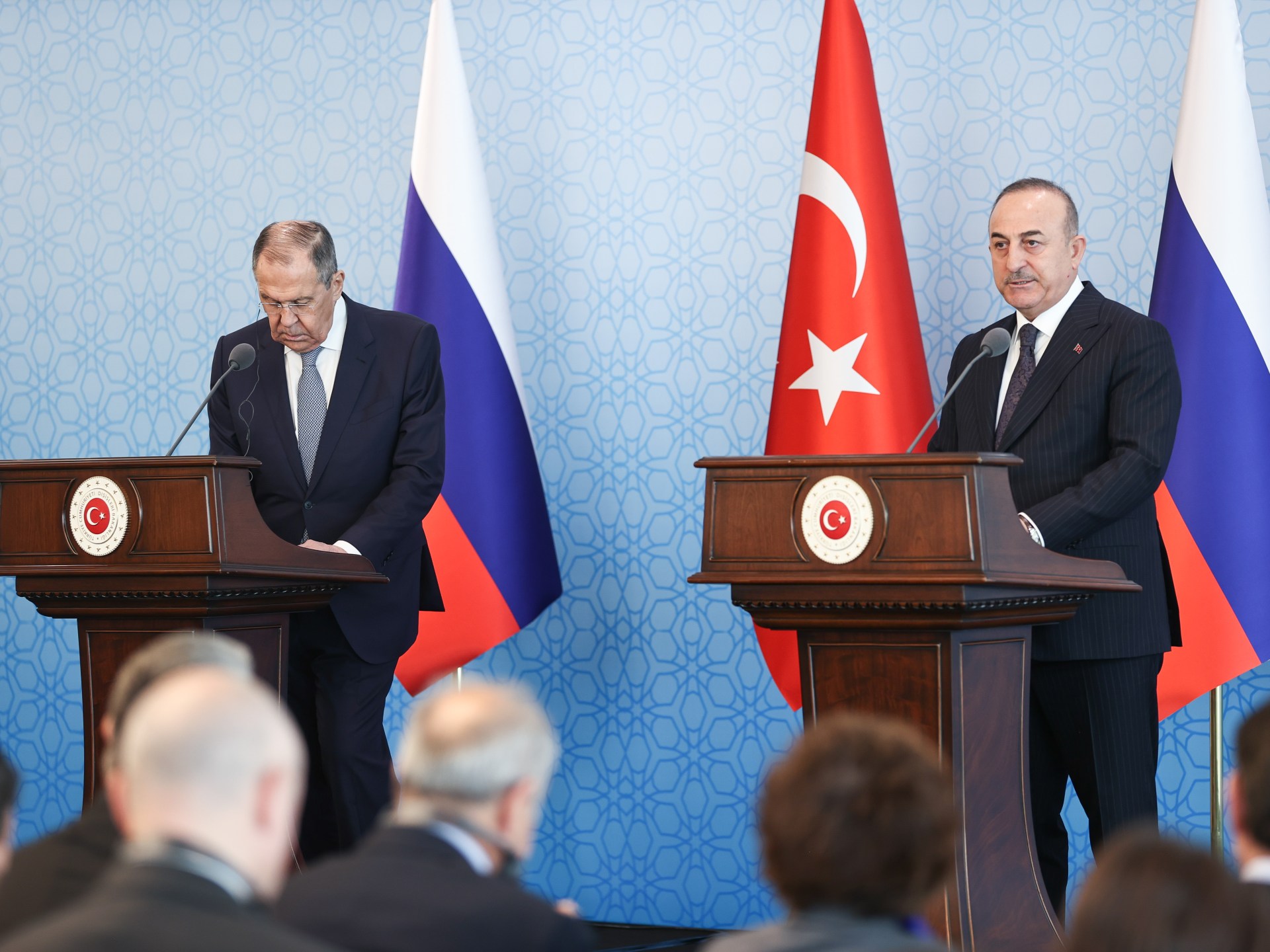Turkish Foreign Minister Mevlut Cavusoglu considered Jerusalem and Al-Aqsa Mosque an uncompromising red line, while Arab and international reactions to Israeli attacks on Gaza and violations at Al-Aqsa Mosque continued, amid calls for calm and restraint.
In Washington, State Department spokesman Vedant Patel expressed his country's concern about the events in Jerusalem and stressed at a press conference the need to preserve the historical status quo at the city's holy sites.
Russian Foreign Minister Sergey Lavrov also called for the establishment of what he described as the framework for Israeli-Palestinian dialogue, arguing that a two-state solution must be found and that the mechanism by which Western countries operate is not enough.
Lavrov said during a joint press conference with his Turkish counterpart Mevlut Cavusoglu in Ankara that there have been long-standing efforts to revive the Palestinian-Israeli dialogue again, noting that the United States, the West and the Gulf states are closely following the matter.
In turn, the Turkish foreign minister condemned the Israeli attack, which violated the sanctity of Al-Aqsa Mosque and its historical status in the month of Ramadan, adding that "the inhumane treatment of the Israeli police towards the pilgrims at Al-Aqsa Mosque cannot be accepted."
The Turkish Foreign Minister pointed out that security affairs in Israel have been handed over to the most racist and fascist politician, referring to Israeli National Security Minister Itamar Ben Gvir, stressing that the permanent solution lies in the universally accepted two-state solution, and the establishment of an independent Palestinian state with East Jerusalem as its capital.
"Turkey has started a new dialogue with Israel, but let everyone know – especially Israel – this cannot be in return for the Palestinian cause, as Al-Aqsa Mosque and Jerusalem are always a red line for us, and in these matters we can never compromise," he said.
Turkish President Recep Tayyip Erdogan had earlier stressed the need for the Muslim world to unite against Israeli attacks.
In a phone call with his Iranian counterpart Ebrahim Raisi on Friday, he stressed the need for wisdom to prevail to prevent a new spiral of violence, and that it would be useful to take initiatives to guide all parties to arbitrate the language of reason and logic.
Calls for restraint
In the same vein, China urged the parties involved in the Palestinian-Israeli conflict to exercise restraint and not escalate the situation. The Chinese Foreign Ministry spokeswoman called on the U.N. Security Council to hold urgent consultations on the situation.
British Foreign Secretary James Cleverly also condemned Israeli police violence at the Al-Aqsa Mosque and "indiscriminate attacks" with rockets from southern Lebanon and Gaza on Israel, stressing Israel's right to defend itself.
Cleverly called on all parties to reduce tension, respect status quo arrangements at Jerusalem's holy sites and stop all provocations.
Demonstrations
Meanwhile, hundreds of Jordanians demonstrated in the center of the capital Amman to protest the violations of the Israeli occupation against civilians in occupied Palestine.
The demonstrators in the march, called for by the National Forum to Support the Resistance and Protect the Homeland, raised banners saluting the steadfastness of the protesters in the blessed Al-Aqsa Mosque, and condemned the attacks by the Israeli occupation forces on them. Participants called for support for Palestinian resistance and the expulsion of the Israeli ambassador in Amman.
Demonstrations also took place in northern Syria, following Friday prayers, in the cities of Jarablus, Azaz, al-Bab, Afrin and Idlib, which are under the control of Syrian opposition forces.
In the city of Azaz, Abu Abdullah al-Sheikh, one of the participants in the demonstrations, said that Israeli forces continue their attacks on Palestinians, expressing support for the demonstrators and their support for the Palestinian brothers.

